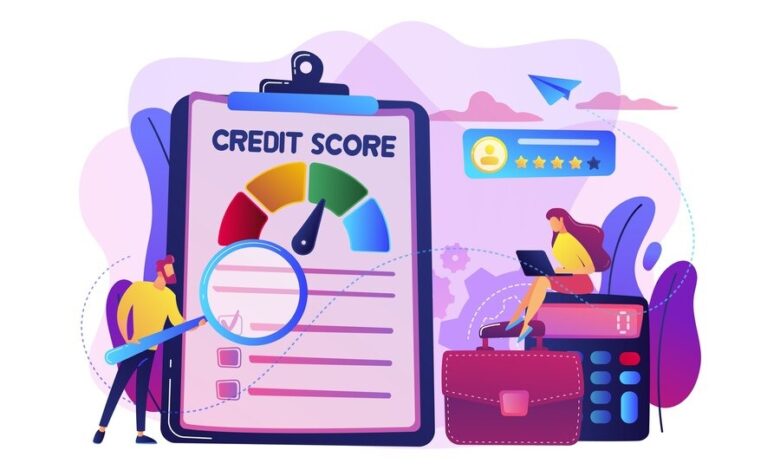Understanding Credit Scores and Loan Eligibility: What You Need to Know forpchub.com

Introduction
Have you ever wondered why some people get approved for loans instantly while others face rejection or high interest rates? The answer often lies in a three-digit number: your credit score. Understanding credit scores and how they impact your loan eligibility is crucial, especially if you’re planning to buy a house, finance a car, or even start a business.
In this guide, we’ll break down what credit scores are, why they matter, and how they influence your ability to secure a loan. Whether you’re a financial newbie or someone looking to improve their credit profile, this article is packed with actionable insights tailored for you. Ready to dive in? Let’s go!
What is a Credit Score?
A credit score is just a number that shows how reliable you are with money. Lenders use it to gauge how likely you are to repay a loan on time. Your credit score is a number between 300 and 850 that shows how you handle things like paying bills, using credit, and how long you’ve been using credit.
Think of it as a grade for your financial behavior—the higher your score, the better your chances of getting approved for a loan at favorable terms.
Key Components of a Credit Score
- Payment History (35%): Do you pay your bills when they’re due? Late payments can hurt your score a lot.
- Credit Utilization (30%): This measures how much of your available credit you’re using. It’s better to keep it below 30%.
- Credit history length (15%): It’s better to have credit accounts for a long time.
- Credit Mix (10%): Having different types of credit, like credit cards and loans, can improve your score.
- New Credit Inquiries (10%): Applying for too much credit in a short time can hurt your score.
Why Does Your Credit Score Matter?
Your credit score isn’t just a number; it’s a gateway to financial opportunities. Here’s why it matters:
- Loan Approval: Lenders look at your credit score to decide if they will approve your loan request. A higher score increases your chances.
- Interest Rates: Borrowers with higher credit scores often qualify for lower interest rates, saving you money over the life of the loan.
- Loan Amounts: A strong credit score may also enable you to borrow larger sums.
- Rental Agreements: Landlords often check credit scores to assess your reliability as a tenant.
- Employment Opportunities: Some employers review credit reports for roles requiring financial responsibility.
How Credit Scores Affect Loan Eligibility
Your credit score plays a pivotal role in determining the types of loans you can access, the interest rates you’ll pay, and even the repayment terms you’ll receive. Here’s how it breaks down:
1. Types of Loans
- Personal Loans: These are often unsecured, making credit scores a critical factor. A score above 670 is usually ideal.
- Mortgage Loans: Most lenders require a minimum credit score of 620 for conventional loans, though higher scores can lead to better rates.
- Auto Loans: Scores of 660 and above can help you secure lower rates, but some lenders offer options for those with lower scores.
- Credit Cards: Premium credit cards often require scores of 700 or higher.
2. Interest Rates
- Borrowers with excellent credit (750+) often enjoy interest rates that are several percentage points lower than those with fair or poor credit. For instance, on a $20,000 car loan, this could mean saving thousands over the loan term.
3. Approval Odds
- A low credit score can lead to loan rejections or approvals with stricter conditions, such as higher down payments or shorter repayment periods.
Tips to Improve Your Credit Score
Improving your credit score isn’t an overnight process, but with consistent effort, you can see significant results. Here are some actionable tips:
1. Pay Bills on Time
Set reminders or automatic payments so you don’t forget any due dates.
2. Lower Your Credit Utilization
Try to keep your credit card use below 30% of your limit. For example, if your limit is $10,000, keep your balance under $3,000.
3. Don’t Close Old Accounts
Keeping your credit card account open, even if you don’t use it, can help you build a longer credit history.
4. Limit New Credit Applications
Every time you apply, it can trigger a hard check on your credit, which might lower your score a little for a short period. Apply only when necessary.
5. Check Your Credit Report
Credit report mistakes can lower your score. Request a free report from agencies like Experian, Equifax, or TransUnion and dispute inaccuracies.
Common Myths About Credit Scores
Let’s debunk some common misconceptions:
- Checking Your Credit Lowers Your Score: Checking your own credit is a soft inquiry and doesn’t affect your score.
- Closing Credit Cards Boosts Your Score: Closing accounts can actually shorten your credit history and increase utilization.
- To build credit, you need to have a balance. Paying the full balance every month is good for your credit score.
Conclusion
Understanding credit scores and loan eligibility isn’t as complicated as it seems. By knowing what factors influence your score and taking proactive steps to improve it, you can unlock better financial opportunities and achieve your goals. Whether it’s buying your dream home or securing a loan for your next big project, your credit score plays a starring role.
Start by checking your credit report, setting financial goals, and adopting habits that boost your creditworthiness. Remember, it’s never too late to take control of your financial future!
FAQs
1. What’s the lowest credit score needed to get a loan?
The minimum credit score varies by loan type and lender. Most regular home loans usually need a credit score of at least 620.
2. How much time does it take to boost a credit score?
It depends on the factors affecting your score. Minor improvements can happen within a few months, while major changes may take a year or more.
3. Is it possible to get a loan if I don’t have any credit history?
Yes, but options may be limited. Consider secured loans or credit-builder loans to establish credit.
4. Does income affect my credit score?
No, your credit score depends on how you handle credit, not how much money you make. But lenders might look at your income when deciding on loan approvals.
5. How often should I look at my credit score?
Check it at least once a year or before applying for a major loan to ensure there are no errors or surprises.


